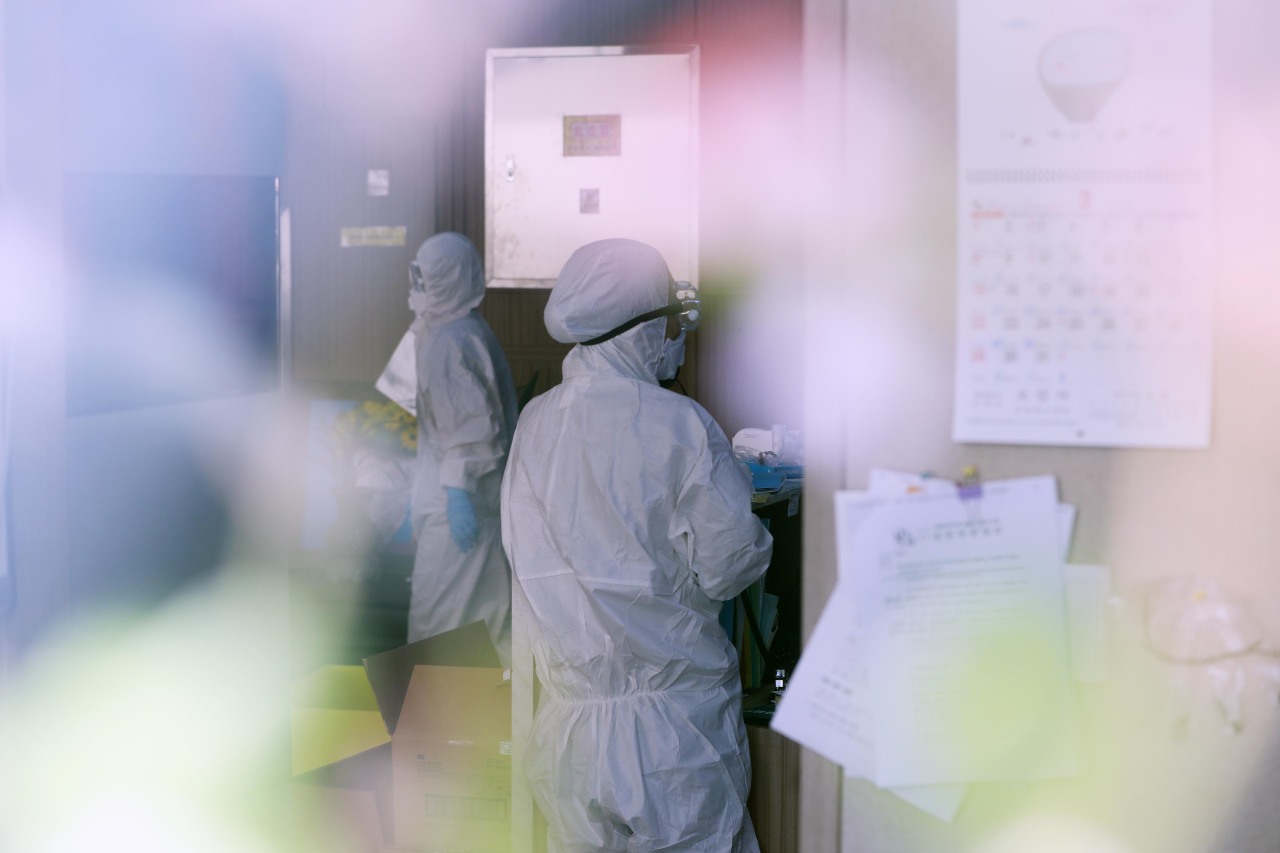S. Korea on edge over new coronavirus clusters in Daegu
By Ahn Sung-miPublished : March 18, 2020 - 13:02

Korean authorities are on alert as additional clusters of the novel coronavirus infections emerged in Daegu, the epicenter of the local outbreak, despite a relative slowdown in new cases nationwide.
On Wednesday, Korea reported 93 new COVID-19 cases, bringing the nation’s total to 8,413, according to the Korea Centers for Disease Control and Prevention. It marks the fourth straight day that the number of new cases remained in double digits rather than triple. Three more people died, raising the death toll to 84, and 139 were newly declared virus-free, putting the total number of recoveries at 1,540.
Daegu, the southeastern city accounting for 70 percent of all cases here, reported new clusters of infections at nursing homes. At Hansarang Nursing Hospital, 74 people -- 57 patients and 17 medical staff -- have tested positive so far.
There were 117 patients hospitalized with 71 medical staff total at the hospital, which was immediately placed under cohort isolation.
Four other nursing homes in Daegu reported 13 additional cases, seven at Baesung Hospital, four at Suseong Hospital and one each at Jinmyung Silver Home and Siji Giriatic Hospital. The sudden revelation of cases at nursing homes is a result of the city’s exhaustive testing at nursing homes and social welfare facilities, amid concern about mass infections among seniors and people with preexisting illnesses who are at greater risk of death or serious complications.
In Daegu, a 17-year-old showing pneumonia-like symptoms died on Wednesday, raising concerns as cases with teenagers and children were thought to be less fatal than older people. The KCDC has yet to confirm the case as COVID-19, as the result of a posthumous test is still pending. But health officials noted the deceased had mixed results -- both positive and negative -- when tested several times while hospitalized.
While Korea reported 2,867 cases among patients under 30 as of Wednesday, there had been zero deaths among them. Only one patient between the ages of 30 and 39 had died, with only one death aged 40-49 as well.
The number of infected continued to rise in the country’s most populated areas -- Seoul and Gyeonggi Province -- home to some 25 million people.
Of the new cases, Seoul reported five, with two of them linked to an insurance call center in Guro-gu, the largest cluster of infections in the capital with 134 infections so far. Nearby Gyeonggi Province reported 15 new cases Wednesday, with most of them linked to the cluster infection at Grace River Church in Seongnam, which has reported 55 infections so far.
Additional cases were reported at Bundang Jesaeng Hospital, south of Seoul, including chief of the hospital Lee Yeon-sang, bringing the total infections to 29 there.
As Lee was part of Korea’s central coronavirus response team, government officials that were in contact with him were put into self-isolation, including Vice Health Minister Kim Gang-lip. Seongnam Mayor Eun Soo-mi has also been tested for the virus.
Korea has seen a slowdown in the spread of the novel coronavirus here that has raised tentative hope. Nevertheless, experts warn of the possibility of more cases appearing as new clusters of infections continue to emerge, while there is an upward trend of those coming from overseas.
The KCDC noted the recent surge in cases arriving from abroad, which stands at 66 as of Wednesday. With imported cases on the rise, South Korea is extending special quarantine measures to cover all arrivals from abroad, starting Thursday.
All arrivals from overseas are required to have their temperatures checked, declare whether they have respiratory symptoms and complete special quarantine documents, including their domestic address and phone number, at the airport to be cleared for entry.
“We ask to delay or cancel overseas travel unless it’s urgent,” said KCDC Director Jung Eun-kyong during a daily briefing. “With confirmed cases rising in Europe and Southeast Asia, it is safe to delay overseas travel that is not essential nor urgent.”
The fatality rate for COVID-19 stood at 1 percent locally -- below the World Health Organization’s estimation of 3.4 percent globally -- and 90 percent of deaths here were among those aged 60 or older.
So far, the country has tested 295,647 people for COVID-19, with 270,888 testing negative, while 16,346 people are awaiting results.
By Ahn Sung-mi (sahn@heraldcorp.com)


















![[KH Explains] Hyundai's full hybrid edge to pay off amid slow transition to pure EVs](http://res.heraldm.com/phpwas/restmb_idxmake.php?idx=652&simg=/content/image/2024/04/18/20240418050645_0.jpg&u=20240418181020)

![[Today’s K-pop] Zico drops snippet of collaboration with Jennie](http://res.heraldm.com/phpwas/restmb_idxmake.php?idx=642&simg=/content/image/2024/04/18/20240418050702_0.jpg&u=)